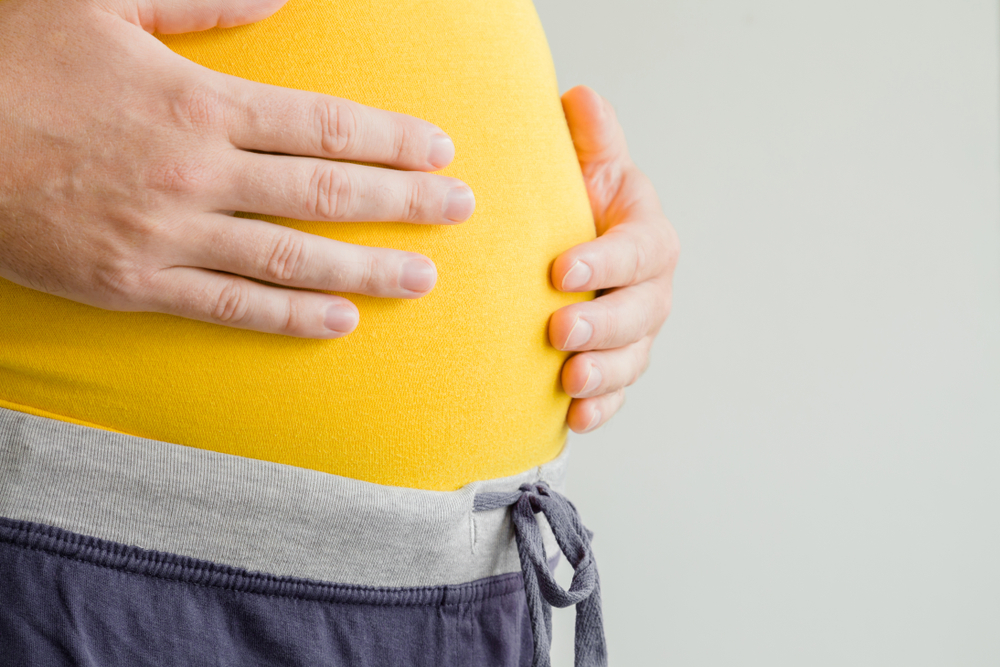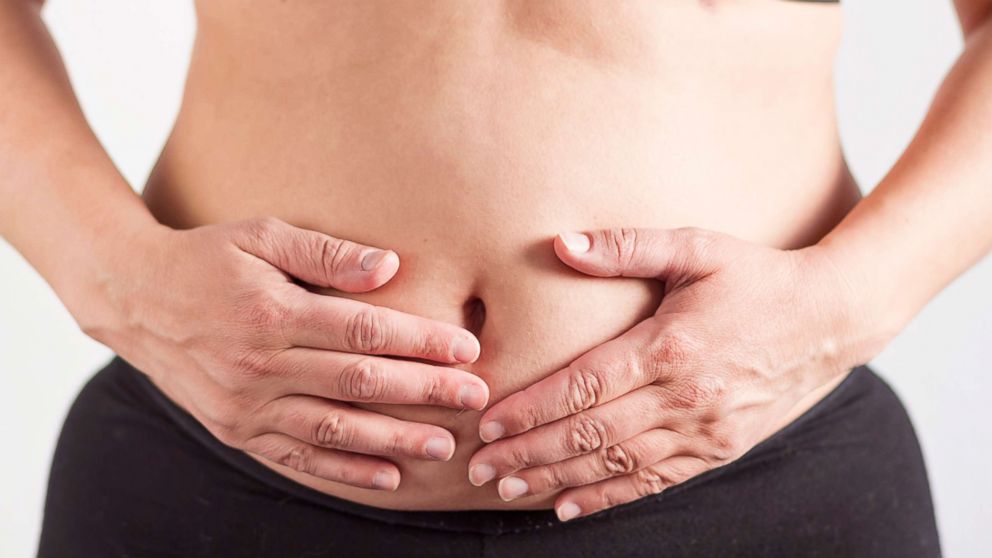Wellness
Here Are Some Ways You Can Get Rid of Your Bloated Stomach ASAP
Do you always find yourself with a bloated stomach? There are many reasons why a bloated stomach is caused. We...
By: / June 26, 2020

Do you always find yourself with a bloated stomach? There are many reasons why a bloated stomach is caused. We give you all the insights about its causes and how you can effectively get rid of them!
Contents
What is a bloated stomach?

If you always feel uncomfortable in your abdominal and stomach region of your body, then you most likely have a gastrointestinal (GI) tract issue. It is most likely being filled with gas or air. Also, about 70% of your immune system is located in your gut. Hence, your gut bacteria play a vital role.
Not only that, but it’s also a fine balance to keep your gut happy which is exactly why the simplest and common things during your daily routine can easily keep your bloating at bay. If you find yourself constantly being stressed, consuming all the wrong kinds of foods, consuming medication, drinking alcohol or being exposed to nasty bugs when you’re travelling, you’re more likely to end up with the bloated stomach.
What are the causes of a bloated stomach?

Diet
It is vital to know what your “trigger foods are and the best way to do this is to visit a medical professional to avoid consuming the wrong food. As everyone’s body deals with food differently, here’s a common and general list of food that has been known to cause a bloated stomach:
- Garlic
- Dried fruit
- Beans
- Burnt or charred food (particularly meat)
- White refined sugar or carbs
- Gluten
- Processed meats
- Dairy
Stress
Most health concerns are caused by our stress levels, and so does bloat. Studies have shown that in fact, our brains and our guts are very closely linked. Hence, whatever that’s going on up there, has an impact on our digestion.
Imbalances in your gut
The ecosystem of your gut is a sensitive one and a couple of things can actually imbalance your microbiome, which is the bacteria, fungi and yeasts that help you digest your food.
Consuming medication like antibiotics can impact the balance of your gut bacteria. Also, if you find yourself suffering from more bloating than you usually do after consuming these medications, it is best you schedule an appointment with your GP.
Food intolerances
Usually, bloating is associated with having food allergy due to the bacteria breakdown that produces gas and inflammation of your gut. The best thing you can do to avoid bloating is to monitor the food you consume and observe what causes discomfort. If your symptoms persist, it is best that you schedule an appointment with your GP as it might be other concerns that have similar symptoms like IBS (irritated bowel syndrome) or lactose intolerance.
Alcohol
Yes! In most cases, your bloating may be caused by alcohol. This is because alcohol is an inflammatory substance when it is mixed with sugary mixers as well as carbonated drinks, which cause serious bloating at times. Your body metabolises a certain amount of alcohol and it may cause inflammation. Hence why it’s essential to keep your consumption of alcohol to a minimum or avoid it totally if you tend to experience stomach discomfort after drinking.
PMS
Studies have shown that the changes in your hormones, especially progesterone and oestrogen may cause your bodies to retain more salt and water which finally leads to bloating. This is one of the most common side effects of a period and it will usually pass when your period ends.
How to get rid of a bloated stomach?
Switch up your diet

You should stay away from all the food you know will cause you stomach bloating. Indulge in more wholegrain, vegetables, seeds and nuts are they are an excellent source of fibre that helps your guts. Additionally, consume more natural yoghurt, kimchi, pickled vegetables and kefir which are rich in good bacteria. Also, things like turmeric, ginger and oily fish help you soothe uncomfortable stomachs as they are filled with anti-inflammatory properties.
Take probiotics

Consuming probiotics is a good thing as they are strains of good bacteria that when you consume them, they help add on to your levels of bacteria and rebalance the ecosystem of your gut. Probiotics can be found naturally in kefir, yoghurt, miso, sauerkraut and kimchi. Also, probiotics come in forms of capsules, powders and drinks.
To add on, everyone’s body is uniquely different and the general rule of thumb is that probiotics need to be taken at least 10 minutes before you eat your breakfast. This is because it helps your gut throughout the day.
Rule out food allergies & intolerances to common foods

Almost everyone has some kind of food they are allergic to or have intolerances. When you consume food that you are intolerant to, it causes you excess gas production, bloating and other symptoms.
Here are some common food and ingredients to consider:
- Lactose
Usually, Lactose intolerance is associated with many digestive symptoms, mainly bloating. Also, lactose is considered to be the main carbohydrate in milk. - Fructose
Fructose intolerance usually leads to bloating. - Eggs
Experiencing bloating and gas are common symptoms of allergy to eggs - Wheat and gluten
There are actually more people than you know who are intolerant to gluten. Gluten is a protein in wheat, barley, spelt, and some other grains. This then leads to various adverse effects on digestion, which includes bloating.
Get 8 hours of sleep

Not only does your brain not function well when you lack sleep, but apparently your gut gets affected too! Usually, we start our day off with a flat stomach. However, if you did not get enough sleep the night before, your body tends to product cortisol, which is a stress hormone that disrupts your digestive system, leading your stomach to be bloated and you end up constipated. Not a good way to start your day 😂😂
Hence, it is vital that you get 8 hours of sleep a day and avoid eating just before you’re about to sleep. When you eat late into the evening and eat loads of raw food, it may increase the fermentation and gas build-up.
Avoid Constipation

Constipation is a very common digestive concern and it has many different causes. Studies have shown how constipation leads to bloating. Which is why getting more soluble fibre is often recommended when it comes to avoiding constipation. In some cases, increasing fibre needs to be carried out very carefully who those who usually experience bloating because fibre is known to make things worse at times. Hence, in times like this, you may want to try drinking more water or increasing your physical activity. Both these solutions definitely help in reducing bloating.
Eat smaller meals more often

Instead of three big meals a day, try eating more smaller meals. this helps you avoid feeling bloated like you usually do after large meals. Also, eating frequently in smaller portions also helps control your blood sugar level as well as manage your hunger.
Opt for five to six small meals a day, but ensure the quantity of food and calories are proportional to the amount your body needs.
Be Careful of Sugar Alcohols

Sugar alcohols are usually found in sugar-free foods and chewing gums. The sweetness in these foods is usually considered to be a safe alternative to sugar. However, recent studies have shown that they may cause digestive problems in higher amounts. This is because the bacteria in your large intestine digests them and produces gas. You should try avoiding sugars like sorbitol, xylitol and mannitol.
Go slow on carbonated drinks

The fizz or gas in carbonated drinks, even the “diet” drinks, can actually cause gas to get trapped in your belly. This is why you should opt for water which is flavoured by lemon, lime or cucumber or just reduce the number of fizzy drinks you consume each day. Instead, opt for peppermint tea which is a soothing beverage that is known to help with reducing bloating.
Chew your food

Even though it sounds like a perfectly simple thing to do, we could be doing it wrong. Fast eating without sufficient chewing can cause you bloating as well. Hence, we need to practice the rest and digest method as eating quickly without chewing enough can cause bloating, no matter what we consume.
Cut down on chewing gum

Chewing gum can lead to you swallowing more air in, which then causes bloating. If you have a gum habit, try alternating chewing gum with sucking on a piece of head candy. Also, you could opt for healthy, high-fibre snacks like vegetables, fruits or lower-fat popcorn.
















